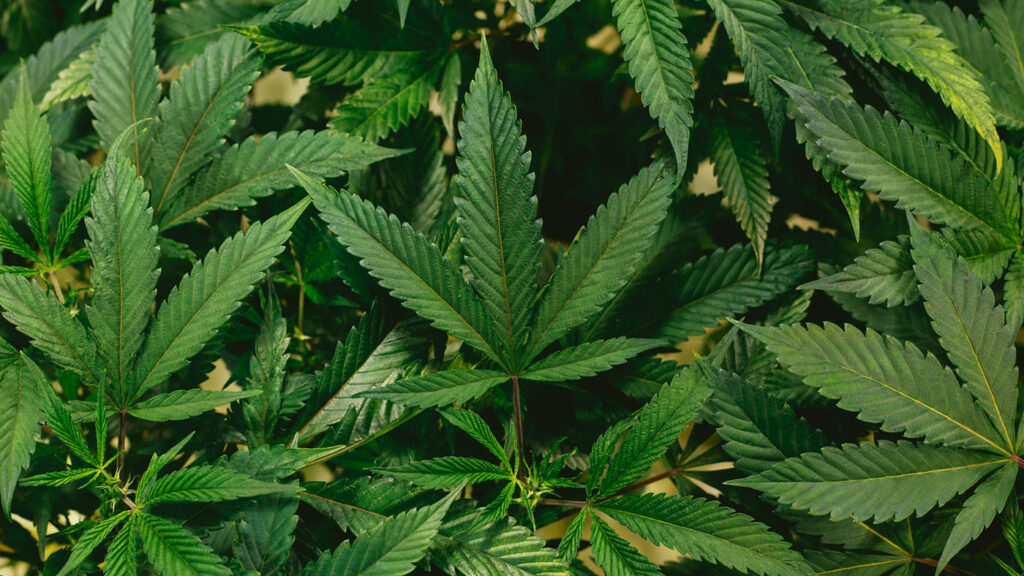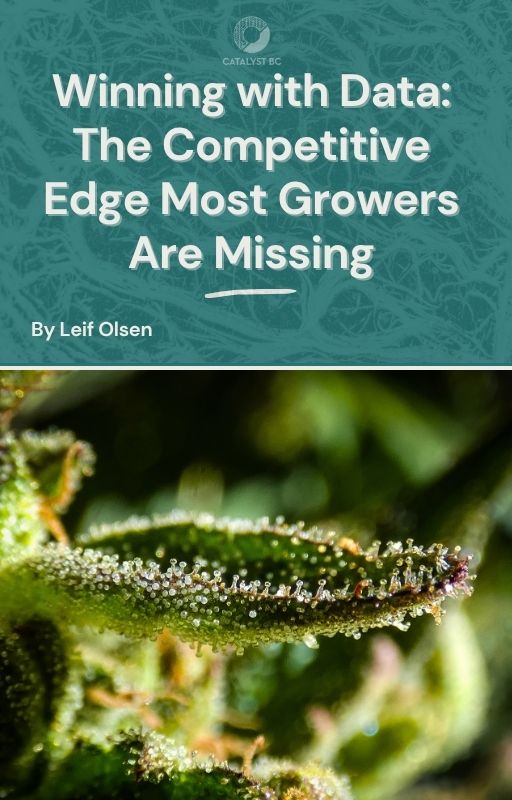Estimated reading time: 1 minute
Table of contents
- Introduction
- Legal Possession and Personal Liberty
- Expungement, Release, and Resentencing
- Delivery
- Licensing and Regulatory Structure
- Taxation and Revenue Distribution
- Local Control
- Improving Medical Access
- Conclusion
- New York’s Marijuana Regulation & Taxation Act FAQs
- Additional Resources
- Free eBooks For Cannabis Business Success
- Latest Articles

Introduction
On March 31, 2021, Governor Andrew Cuomo signed legislation (S.854-A/A.1248-A) legalizing adult-use cannabis in New York resulting in the New York Marijuana Regulation and Taxation Act of 2021.
The law will establish the Office of Cannabis Management to implement a comprehensive regulatory framework that will cover medical, adult-use, and cannabinoid hemp. The law will also expand New York State’s existing medical marijuana and cannabinoid hemp programs.
Below is a summary of key provisions of the New York Marijuana Regulation and Taxation Act.
Legal Possession and Personal Liberty
- Personal possession limit of up to three ounces of cannabis and 24 grams of cannabis concentrate. Legal possession of up to three ounces is effective immediately.
- Home cultivation: A maximum of 12 plants can be grown per household with more than one adult.
- Three mature plants and three immature plants for adults over 21
- Six mature plants and six immature plants maximum per household
- Home growing will not take effect until regulators set rules for it. Regulators have a maximum of six months to do so for medical patients and must do so for adult-use consumers no later than 18 months after the first retail adult-use sales begin.
- Police cannot use the odor of cannabis to justify searches.
- Legislation permits the sale of hemp flower in the cannabinoid hemp program and allows for smokeable forms only when adult-use retail stores are operational.
Expungement, Release, and Resentencing
- Legalized conduct will be automatically expunged.
Delivery
- Retailers, microbusinesses, and delivery licensees are allowed to deliver to cannabis consumers.
- Cultivators are prohibited from holding delivery licenses.
- No entity may hold an interest in more than one delivery license.
- No more than 25 full-time employees per delivery licensee.
- The granting of delivery licenses shall promote social and economic equity applicants.
Licensing and Regulatory Structure
- Legislation establishes the New York State Cannabis Control Board and the Office of Cannabis Management.
- The Office of Cannabis Management — a new independent agency operating as part of the New York State Liquor Authority — is responsible for regulating the adult-use cannabis market as well as the existing medical marijuana and hemp programs and will be overseen by a five-member Cannabis Control Board. The governor shall select three members, including the chairperson. The President of the Senate and Speaker of the Assembly shall select one member each.
- A goal is set of 50% of licenses going to social and economic equity applicants. Social equity applicants are defined as people from “communities disproportionately impacted by the enforcement of cannabis prohibition,” as well as minority- and women-owned businesses, disabled veterans, and financially distressed farmers.
- Regulators may allow existing medical cannabis businesses to convert no more than three of their existing storefronts to dual use if they pay a one-time “special licensing fee” to fund social and economic equity and incubator assistance.
- Social consumption sites and delivery services are permitted.
Taxation and Revenue Distribution
- Legislation imposes a hybrid tax, with both a potency-based tax on distributors and a point-of-sale tax:
- levies a tax on distributors at 0.5 cents per milligram of THC for flower, 0.8 cents per milligram of THC for concentrates, and 3 cents per milligram of THC for edibles; and
- imposes a point of sale retail tax of 9% state tax and a 4% local tax (75% of the local earnings would go to municipalities and 25% to counties).
- After regulatory and administrative costs, 40% of cannabis revenue will go to community grants reinvestment, 20% to schools, and 40% to drug treatment facilities and public education, including for a youth-focused public health education and prevention campaign, a statewide public health campaign on the health effects of cannabis, and for substance use disorder treatment.
Local Control
- Cities, towns, and villages may opt-out of allowing adult-use cannabis retail dispensaries or on-site consumption licenses by passing a local law by December 31, 2021 or nine months after the effective date of the legislation.
Improving Medical Access
- The state’s existing medical cannabis program will be changed to expand the list of qualifying conditions and allow patients to smoke marijuana products.
- Patients can also obtain a 60-day, rather than a 30-day, supply.
Conclusion
The New York Marijuana Regulation and Taxation Act marks a pivotal shift in cannabis legislation, ushering in a comprehensive framework that supports adult-use legalization, expands medical access, and prioritizes social and economic equity. From legal home cultivation and automatic expungement to progressive licensing opportunities and targeted revenue reinvestment, this landmark legislation positions New York as a model for cannabis reform.
As the state continues to roll out regulations and licensing pathways, now is the time for entrepreneurs, operators, and advocates to prepare. Whether you’re exploring entry into the New York cannabis market, seeking guidance on compliance, or looking to understand how these changes affect your business or community — staying informed and engaged is key.
Looking to get licensed, expand your cannabis operations, or navigate regulatory requirements in New York? Contact Catalyst BC today for expert consulting, turnkey solutions, and hands-on support every step of the way. Let’s build a compliant, equitable, and thriving cannabis future together.
Learn more about our New York Cannabis Consulting Services or Book a Complimentary Consultation.
New York’s Marijuana Regulation & Taxation Act FAQs
The New York State Office of Cannabis Management (OCM) was established upon passage of the Marijuana Regulation and Taxation Act (MRTA) in March 2021 to implement a regulatory framework for medical and adult-use cannabis and hemp in the state of New York.
Start by booking a complimentary consultation with our New York consulting team. From securing municipal approvals, and applying for and receiving a cannabis license, to developing SOPs and facility designs, there are significant considerations involved. Our consultants provide end-to-end support to help you launch and sustain your New York based cannabis business.
Our consultants offer cannabis business planning, application writing, facility design, municipal approval, operational guidance, and cannabis M&A advisory services to help you achieve your goals in the cannabis industry. View our services page for more information.
Yes. Our team of operational advisors and technical writers will craft a comprehensive, compliant, and unique application.
Visit our New York cannabis page to learn more about local laws and regulations, license types, fees, and more.
To obtain a license, applicants must meet all eligibility requirements and submit a competitive application. If you do not meet the eligibility requirements for a license, or you apply and are not selected, you may have other opportunities to apply for an adult-use cannabis license in the future.
Our consulting team offers a complimentary consultation and is excited to partner with you in your journey. Contact us to set up your consultation call today.
The Office of Cannabis Management Enforcement Division who upholds New York’s cannabis laws and regulations.
Yes, recreational cannabis has been legal in New York since 2021. It can only be purchased legally at state-approved dispensaries.
New York has allowed medical marijuana since 2016.
In 2021, New York legalized recreational marijuana.
As of 2022, recreational cannabis is sold legally in New York, including on Native American reservations.
Recreational cannabis is only available for purchase at state-approved dispensaries.
The cannabis business licensing application process is complex and demands meticulous planning, regulatory compliance, and operational expertise. Numerous variables and intricate details must align with the framework established by cannabis regulators and local authorities. Learn more about the process here.
New Yorkers 21 years and older can grow up to six plants in their home for personal use (3 mature plants and 3 immature plants) and a maximum of twelve plants per household (6 mature plants and 6 immature plants), even if there are three or more adults 21 and over in the residence.
Additional Resources
Free eBooks For Cannabis Business Success
Latest Articles
- Missouri Cannabis Licensing & Business Opportunities 2026Missouri has established itself as the premier success story for cannabis in the Midwest, evolving from a standard medical regime to a high-volume adult-use market that exceeded $1.52 billion in annual sales in 2025. As the market enters the 2026–2027 biennium, the landscape is shifting from rapid expansion toward operational maturation and specialized entry.
- North Carolina Cannabis Licensing & Business Opportunities 2026North Carolina remains one of the final significant jurisdictions in the United States without a comprehensive medical or adult-use cannabis program. However, the 2026–2027 biennium is projected to be the most consequential period in the state’s cannabis history. Driven by the formation of the North Carolina Advisory Council on Cannabis and an impending federal “hemp cliff,” the state is moving from a period of passive prohibition toward a structured, albeit highly restrictive, regulatory framework.
- Nebraska Cannabis Licensing & Business Opportunities 2026Nebraska is entering the 2026–2027 biennium at a historic crossroads. Following the 71% voter approval of Initiatives 437 and 438 in late 2024—the largest margin for a medical cannabis initiative in U.S. history—the state is currently standing up its first regulated medical infrastructure.
- Florida Cannabis Licensing & Business Opportunities 2026Florida represents the most capital-intensive and professionally structured cannabis market in the nation. As of 2026, the state is at a crossroads: it is both expanding its mature medical program and preparing for a potential constitutional shift toward universal adult-use access. On November 3, 2026, Florida voters will decide on the Marijuana Legalization Initiative (Amendment 3). Passing this requires a 60% supermajority—a high threshold, but one that polls suggest is within reach.
- Virginia Cannabis Licensing & Business Opportunities 2026As Virginia transitions from its current “possession-only” model toward a fully regulated retail market, the 2026–2027 biennium represents a once-in-a-generation window for market entry. Unlike the vertically integrated “medical-only” regimes of the past, Virginia’s upcoming framework focuses on decentralization, specifically architected to favor small Virginia-based operators over large multi-state corporations.
- Minnesota Cannabis Licensing & Business Opportunities 2026Minnesota is currently undergoing a transformative shift in its cannabis landscape, moving from a semi-regulated hemp-derived market toward a fully comprehensive adult-use framework. Overseen by the Office of Cannabis Management (OCM), the 2026–2027 biennium represents the critical “enforcement phase” where temporary registrations sunset and permanent, merit-based licenses define the market’s long-term leaders.











